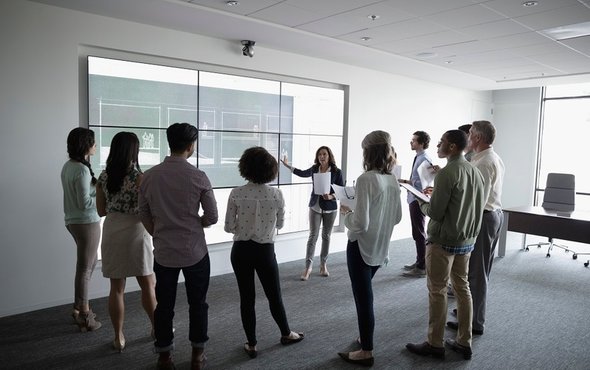撰文\播音:史蒂夫·米尔斯基(Steve Mirsky)
翻译 张朵儿
审校 郭晓
“Collaboration in science across the world is the key to a better world in the future. Doesn’t matter whether it’s drug resistance or climate change or social inequalities. All of these, I believe, can be broached by science.”
“全球科学合作是建设更好未来的关键。无论是耐药性还是气候变化又或者是社会不平等,我相信这些都可以通过科学来解决。”
Jeremy Farrar, director of the Wellcome Trust, one of the world’s biggest non-governmental funders of scientific research, earlier today, January 23rd. He spoke to Scientific American Editor in Chief Mariette DiChristina at the World Economic Forum in Davos, after they both took part in the Global Science Outlook discussion at the Forum.
惠康基金会的董事长杰里米·法勒于1月23日早些时候如是说,惠康基金会是全球最大的科学研究非政府基金会之一。他在达沃斯的世界经济论坛与科学美国人主编玛丽耶特·迪克利斯蒂娜进行了交谈,此前他们共同参加了该论坛的全球科学展望讨论会。
“And nobody—not myself, not our organization, Wellcome, no organization—is going to solve this on their own. And so we’ve launched a campaign called Together Science Can, which brings together people from absolutely around the world to stand up for those things that we care about. That people can work together across borders, they can be friends, they can share their information, and they can eventually make the world a better place.”
“而且,任何人——无论是我,还是我们的惠康基金会,任何组织——都不能独自解决这些问题。所以,我们发起了一项名为“Together Science Can”的活动,希望从全球范围内聚集一群支持我们所关心的事情的人。这些人可以跨境合作,可以成为朋友,还可以共享信息,最终他们能够造福世界。”
You can see video of the entire discussion that took place at Davos earlier today. Just google World Economic Forum at Davos, Global Science Outlook.
如果想观看今天早些时候在达沃斯举行的整个讨论会,你可以搜索“达沃斯世界经济论坛,全球科学展望”。

 京公网安备11010502039775号
京公网安备11010502039775号  京公网安备11010502039775号
京公网安备11010502039775号 
















